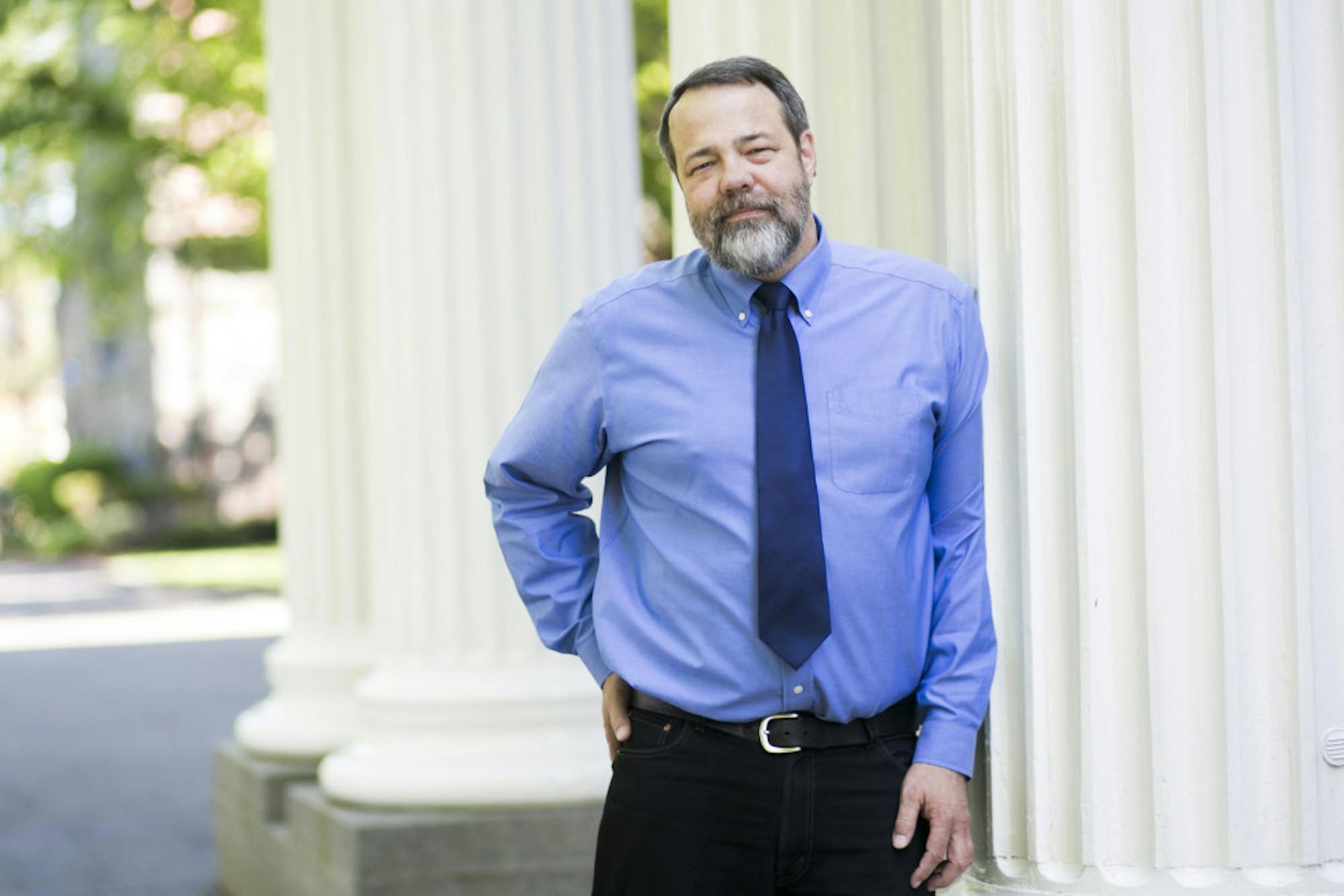Robert Cook was named the new dean of the Graduate School of Arts and Sciences (GSAS) last May after serving as interim dean since the previous November. Cook replaced the former dean of GSAS, Lynne Pepall, who stepped down from the position in 2013 after serving as dean for seven years.
Cook started at Tufts in 1986 as an assistant professor in the Department of Psychology and was later promoted to full professor in 1999. He also served as chair of the department from 2005 to 2011.
Cook explained that he currently has two major projects to work on over the next few months. One of the projects is upgrading the admissions procedure for the GSAS in order to make it easier for prospective students to learn more about the graduate programs and apply. The other will be generally increasing the web presence of the GSAS to provide more information about programs online.
"We're upgrading the graduate school website entirely to also better get our message out as to what we offer as a university in our graduate programs," Cook said. He added that he hopes to complete these projects by the end of the academic year.
Cook noted that much of his responsibility as dean has included general administrative business and meetings, but also involved helping to provide a vision and strategic plan for where the graduate school is heading and how to best allocate resources to get there.
"There are certainly areas where the graduate school can help and advance the vision of the university, and so one of the reasons I find being the graduate dean an attractive position to take on is that I can try to advance that," Cook said.
He added that he has enjoyed the wider range of departments and roles that he now is able to oversee.
"It certainly is interesting to try to coordinate a lot more academic units," Cook said. "Instead of worrying about just my students and the lab and my teaching responsibilities, now I'm worrying about teaching and research across a much wider variety of departments. That requires communicating with a lot more people about topics that have a larger impact across the university."
President of the Graduate Student Council Brendan "Burns" Healy, a mathematics graduate student, said that he has worked with the dean on the strategic planning committee and noted Cook's responsiveness and willingness to listen to graduate students.
"[He is] able to advocate for graduate students from within the administration," Healy said.
During his significant amount of time at Tufts, Cook said that he has enjoyed seeing Tufts transform from a traditional liberal arts college to a larger university with an increased emphasis on research and its contribution to education. He also noted the growing tendency for students to get involved with research during their time at the university.
"Certainly one of the biggest changes is just the larger number of graduate students and undergraduates who are getting involved with research at an earlier and earlier time in their education, and I think that is very stimulating and a good direction to pursue," he said.
Healy also noted the importance of research for the Tufts community, but added that this research could be better used.
"The one thing that's underutilized is the research that graduates are able to produce," Healy said.
He also underscored the importance of working collectively with undergraduates and professors to provide more rounded research.
This collaboration between the different schools and departments is what makes Tufts so special, according to Cook. He explained that having graduate students on campus increases the opportunities available to undergraduates and also helps provide role models. Students are now able to see a whole spectrum of academic life, he added.
In regard to improvements the GSAS might hope for, Cook said that the GSAS has not received the same amount of attention that the undergraduate school has in recent years. Although Tufts has focused much investment in improving its undergraduate school, he hopes to see more investment in the GSAS in the future.
Healy added that he would like to see additional funding opportunities and more space for the GSAS, including housing, workspaces and collaborative spaces.
Cook explained that he has always been interested in higher education, and his father was a professor before him.
"From a very early age, I knew that being a professor was an interesting career to pursue and that universities were special places," he said.
Outside of his administrative role as dean, Cook said that he hopes to be able to continue with his research, particularly with the help of graduate students in his department.
Cook received his B.S. in psychology from Ohio State University and his doctorate from the University of California, Berkeley, in biopsychology.
- Nina Goldman contributed reporting.
Graduate School of Arts and Sciences names new dean

05/21/2014 - Medford/Somerville, Mass. - Robert Cook, Dean of the Graduate School of Arts and Sciences, poses for a portrait at Ballou Hall on May 21, 2014. (Kelvin Ma/Tufts University)





